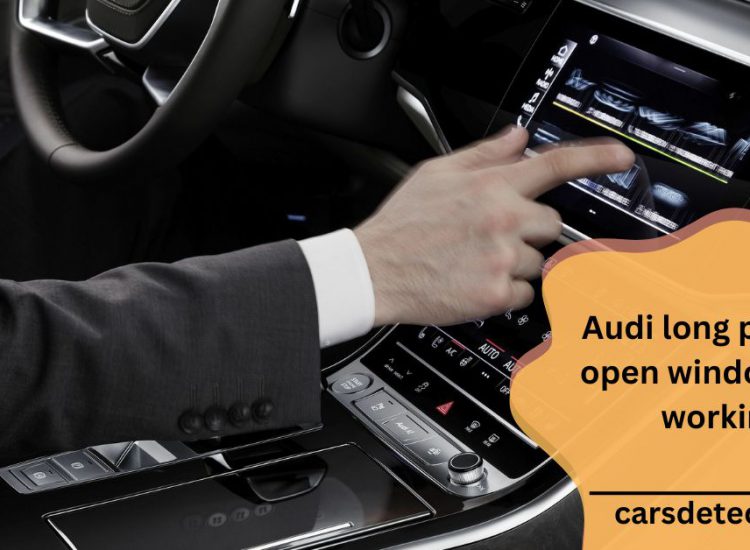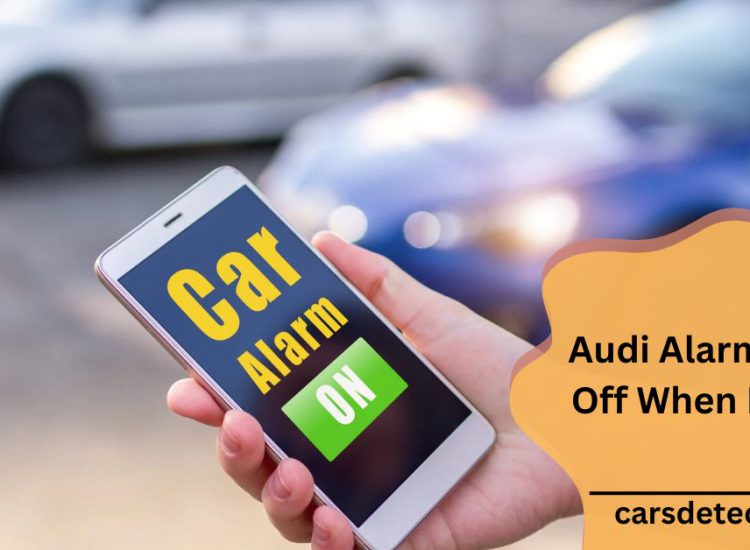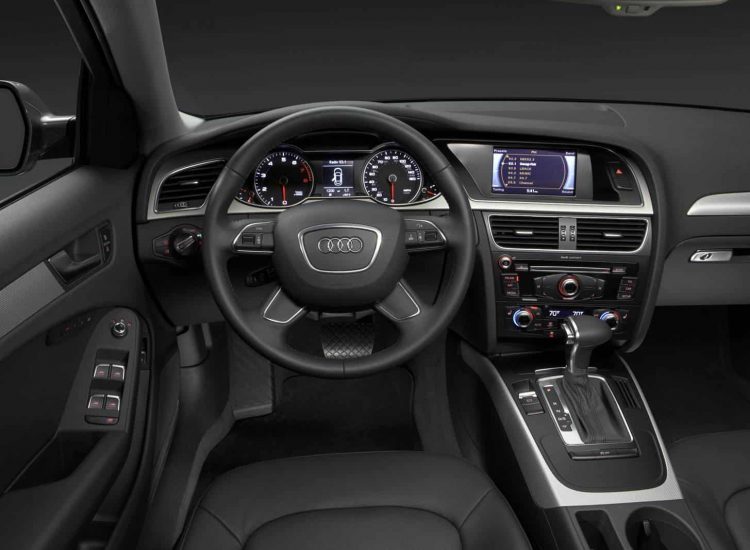Drive system malfunction in Audi Q5 may be due to various issues. Check fluid levels, inspect for leaks, and scan for diagnostic trouble codes. If the problem persists, consult a professional mechanic or Audi service center for prompt assistance.
Toc
- 1. Unraveling Audi Q5 Drive System Malfunctions – Act fast
- 2. Recognizing Signs of Audi Drive System Issues – Drive worry-free!
- 3. Related articles:
- 4. Identifying Potential Causes of Drive System Malfunction:
- 5. Addressing the Problem – Solutions for Resolving the Issue!
- 6. Frequently Asked Questions:
- 6.1. 1. What are common signs of Audi Q5 drive system malfunctions?
- 6.2. 2. How can I troubleshoot an Audi Q5 drive system issue at home?
- 6.3. 3. When should I seek professional help for an Audi Q5 drive system malfunction?
- 6.4. 4. Can an OBD-II scanner help diagnose Audi Q5 drive system problems?
- 6.5. 5. How important is prompt action in addressing Audi Q5 drive system malfunctions?
- 7. Conclusion
Discover success stories of conquering Audi Q5 drive system malfunctions. Your journey could inspire others.
Unraveling Audi Q5 Drive System Malfunctions – Act fast

Navigating the intricacies of Audi Q5 drive system malfunctions requires a comprehensive approach to troubleshooting. From warning lights on the dashboard to unusual noises or performance issues, understanding the potential causes is paramount.
Begin by checking essential components like transmission fluid levels and inspecting for leaks. These basic steps can often unveil the root of the problem. Consider using an OBD-II scanner to retrieve diagnostic trouble codes (DTCs) for a more in-depth analysis.
These codes provide valuable insights into the issues affecting your Q5’s drive system. In case the problem persists or remains elusive, seeking professional assistance from a qualified mechanic or an authorized Audi service center is advisable.
Swift action is crucial to prevent further damage and ensure the longevity of your Audi Q5. By addressing drive system malfunctions promptly, you not only safeguard your vehicle’s performance but also contribute to a smoother driving experience.
Read Also: How To Reduce Oil Level In Audi Q7? – Explore Quick Fixes!
Recognizing Signs of Audi Drive System Issues – Drive worry-free!
Owners can spot signs of an Audi Drive System issue by watching out for the following indicators:
1. Bumpy Ride:
Early signs may include a rough drive or jolts, especially on uneven surfaces. Increased vibrations could point to problems in the suspension system or other parts needing attention.
2. Handling Challenges:
Difficulty steering or decreased control could signal a drive system problem. If your Audi feels less responsive, it may impact overall driving performance.
3. Dashboard Warnings:
Advanced diagnostics systems in modern Audis constantly monitor components. Malfunctions trigger dashboard alerts like ABS or TPMS warnings.
Read Also: 2017 Audi q7 Drive System Malfunction – Click for resolution!
4. Unusual Sounds:
Pay attention to odd noises while driving. Grinding, clunking, or whining may suggest issues with drive system components, such as the transmission or suspension.
5. Power Loss:
Audi drive system malfunctions might result in sudden engine power loss. Address this promptly to avoid safety hazards, especially if acceleration becomes difficult.
6. Gear Shift Delays:
Delays in gear shifts or hesitation in changing gears may indicate drive system problems. The transmission, a crucial part, affects the overall driving experience.
Read Also: Can Volkswagen Service Audi – Schedule your service with us at Volkswagen now!
7. Fuel Efficiency Drop:
Drive system issues can reduce fuel efficiency. If your Audi consumes more fuel without reason, it’s vital to check for underlying problems affecting the driving system.
Identifying Potential Causes of Drive System Malfunction:
- Drive Mode Irregularities: Unusual behaviors in different drive modes might indicate a malfunction in the Audi Q5’s drive system.
- Sensor Anomalies: Malfunctions in sensors responsible for detecting road conditions could contribute to driving system issues.
- Temperature-Related Challenges: Extreme temperatures, whether too hot or too cold, may impact the performance of drive system components.
- Electrical System Interference: Issues with the vehicle’s electrical system, including wiring or connectors, could lead to drive system malfunctions.
- Software Glitches: Bugs or glitches in the vehicle’s software might affect the proper functioning of the drive system.
- Tire Size Discrepancies: Variances in tire sizes, whether due to replacements or uneven wear, may contribute to driving system irregularities.
- Fluid Contamination: Contaminated fluids, such as dirty or degraded transmission fluid, can compromise the efficiency of the drive system.
- Road Debris Impact: Foreign objects or debris impacting crucial components under the vehicle could lead to drive system complications.
- Suspension System Wear: Wear and tear in the suspension system, including bushings and shocks, might contribute to drive system issues.
- Alignment Misadjustments: Improper wheel alignment can strain the drive system, affecting overall vehicle performance.
Read Also: Audi Q5 Steering Defective Do Not Drive – Immediate Audi Service Required!
Addressing the Problem – Solutions for Resolving the Issue!
Once signs of an Audi Q5 drive system malfunction are detected, taking effective steps to rectify the issue becomes paramount. Firstly, it is recommended to consult the owner’s manual for specific guidance on troubleshooting and maintenance.
Simple measures like checking fluid levels, ensuring proper tire inflation, and inspecting for visible damages can be initial DIY steps. For a more in-depth resolution, engaging a qualified mechanic or visiting an authorized Audi service center is advisable.
These professionals have the expertise and diagnostic tools to pinpoint the root cause of the drive system malfunction. Using an OBD-II scanner to retrieve diagnostic trouble codes (DTCs) can provide crucial insights for a targeted repair approach.
Depending on the nature of the issue, the resolution may involve repairing or replacing specific components, such as the transmission, suspension, or sensors. It is crucial to address the problem promptly to prevent further damage and ensure the safety and optimal performance of the Audi Q5.
Read Also: Audi A4 Rattle When Accelerating – Complete Guidelines!
Regular maintenance, adherence to recommended service intervals, and staying proactive in addressing emerging issues contribute to a reliable and well-functioning drive system. Seeking professional assistance when needed ensures comprehensive and effective solutions for a smooth and trouble-free driving experience.
Frequently Asked Questions:
1. What are common signs of Audi Q5 drive system malfunctions?
Signs include rough driving, decreased handling, dashboard warnings, unusual noises, power loss, delayed gear shifts, and reduced fuel efficiency.
2. How can I troubleshoot an Audi Q5 drive system issue at home?
Start by checking fluid levels, inspecting for leaks, and ensuring proper tire inflation. Consult the owner’s manual for specific guidance.
3. When should I seek professional help for an Audi Q5 drive system malfunction?
If DIY measures don’t resolve the issue, or if warning signs persist, consult a qualified mechanic or visit an authorized Audi service center promptly.
4. Can an OBD-II scanner help diagnose Audi Q5 drive system problems?
Yes, using an OBD-II scanner to retrieve diagnostic trouble codes (DTCs) can provide valuable insights into the specific issues affecting the drive system.
5. How important is prompt action in addressing Audi Q5 drive system malfunctions?
Swift action is crucial to prevent further damage and ensure the safety and optimal performance of your Audi Q5. Address issues promptly to maintain a reliable driving experience.
Conclusion
An Audi Q5’s drive system malfunction could be caused by some problems. Inspect for leaks, check fluid levels, and run a diagnostic trouble code search. For immediate assistance, if the issue continues, speak with a qualified mechanic or an Audi service center.


















